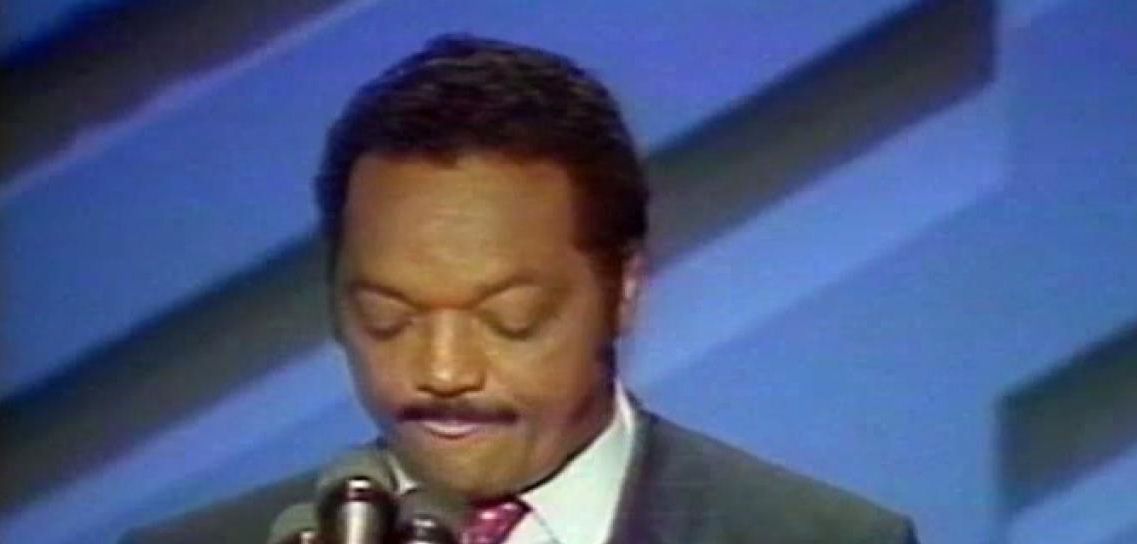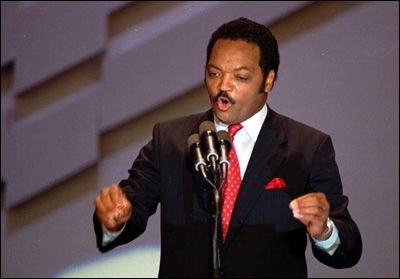Coming in 2nd, gracefully

It’s great to see so many Americans paying close attention to the Presidential race, including so many people who are getting involved for the first time. I’ve avoided advocating for any particular candidate on social media this year, because I feel that online political discussions are mostly self-congratulatory masturbation, and rarely change anyone’s position. So instead I’ll give my vote, my time and my money to my candidate of choice, and let the chips fall where they may. I’ve done the same last two Presidential elections, and that approach feels more satisfying to me than high-fiving like-minded friends on Twitter or Facebook.
There is, however, one aspect of Presidential elections that I’ve been thinking about a lot this year, because I think it’s going to be an interesting aspect of both conventions this summer: the role of the 2nd-place finisher.
There’s much talk of brokered conventions this year, but that won’t change the fact that when each convention is done there will be one person who has secured the party’s nomination and another person who is perceived as the 2nd place finisher. Historically, that 2nd-place finisher has often played the role of unifier — the person who brings the party together after a vigorous internal debate through the primaries and helps focus the entire party’s energy heading into the final election. This transition from the practice round to the real deal usually takes the form of an emotional speech at the convention, in which the 2nd-place candidate throws their support behind the party’s nominee and asks their followers to do the same.
I have a favorite 2nd-place performance in a US political convention in my lifetime: Jesse Jackson in 1988. That year was the closest he ever came to being the Democratic nominee, with 1023 delegates to Michael Dukakis’s 1792.

The 1988 election is mostly remembered for Dukakis’s spectacular loss to George H. W. Bush after months of missteps: his dispassionate response to Willie Horton, his ill-advised publicity stunt in a tank (while running against a decorated war veteran), and other similar gaffes. But that was all after the conventions.
In July of that year, at the time of the Democratic convention, the Republican party was already firmly united behind Bush. The GOP convention hadn’t taken place yet, but there was no doubt that the popular sitting VP would be the nominee. The Democratic party, on the other hand, was much less aligned and united. Dukakis clearly had the nomination wrapped up mathematically, but Jackson had done well running against him in the primaries, and Al Gore had several hundred delegates as well that year. The presence of so many loyal Jackson and Gore supporters gave the convention an unsettled tone. There was broad consensus against Bush — Texas governor Ann Richards, for example, brought down the house with her hilarious speech in which she famously said Bush had been “born with a silver foot in his mouth” — but there was definitely not unanimous support for Dukakis.
On the convention’s opening night in Atlanta, a relatively unknown governor from Arkansas gave the nominating speech. Bill Clinton’s performance didn’t go well, and is remembered mostly for being too much about himself and not enough about Dukakis. He was openly booed several times, and the biggest ovation came after more than 30 minutes of rambling, when he started a sentence with “in closing …” and the crowd cheered so much at the thought of Bill shutting up that he had to wait for the applause to die down. (Check it out here.)
Against that backdrop, Jackson took the stage on the evening of Tuesday, July 19. I was living in Chicago at the time, and I was not a fan. But he won me over with the passage I’ve quoted below. I’ll let his words speak for themselves, but it’s worth noting that, among other things, this was the first time a major speech at either of the major US political conventions ever mentioned gay and lesbian issues.
As one final bit of historical perspective, the Democrats went first in 1988, so this speech was one month before the Republican convention at which Bush introduced Americans to Dan Quayle and first uttered the phrase “a thousand points of light.” In 2016, the Republicans will go first.
Here’s a link to Jackson’s speech, and here’s the passage that formed the centerpiece of it:
Common ground. America is not a blanket woven from one thread, one color, one cloth. When I was a child growing up in Greenville, South Carolina and grandmamma could not afford a blanket, she didn’t complain and we did not freeze. Instead she took pieces of old cloth — patches, wool, silk, gabardine, crockersack — only patches, barely good enough to wipe off your shoes with. But they didn’t stay that way very long. With sturdy hands and a strong cord, she sewed them together into a quilt, a thing of beauty and power and culture. Now, Democrats, we must build such a quilt.
Farmers, you seek fair prices. And you are right! But you cannot stand alone. Your patch is not big enough.
Workers, you fight for fair wages. You are right! But your patch labor is not big enough.
Women, you seek comparable worth and pay equity. You are right! But your patch is not big enough.
Women, mothers, who seek Head Start, and day care and prenatal care on the front side of life, relevant jail care and welfare on the back side of life — you are right! But your patch is not big enough.
Students, you seek scholarships. You are right! But your patch is not big enough.
Blacks and Hispanics, when we fight for civil rights, we are right! But our patch is not big enough.
Gays and lesbians, when you fight against discrimination and a cure for AIDS, you are right! But your patch is not big enough.
Conservatives and progressives, when you fight for what you believe, right wing, left wing, hawk, dove, you are right from your point of view, but your point of view is not enough.
But don’t despair. Be as wise as my grandmamma. Pull the patches and the pieces together, bound by a common thread. When we form a great quilt of unity and common ground, we’ll have the power to bring about health care and housing and jobs and education and hope to our Nation.
We, the people, can win!
UPDATE: a few months after I wrote this post, Jamelle Bouie had an outstanding Slate cover story entitled "Keep Hope Alive" that argued Jackson's 1988 speech could provide Democrats with "a road map for success in Trump's America." Nice to see I'm not the only person who fondly remembers a time when the 2nd place finisher in the Democratic Primaries had the grace and maturity to simply do the right thing.